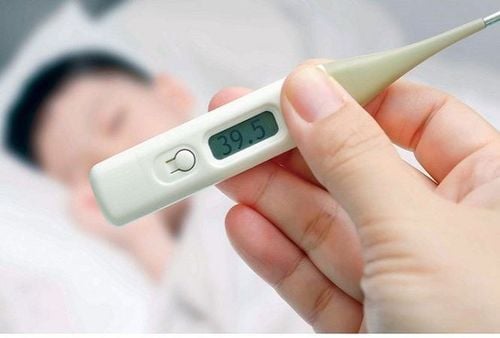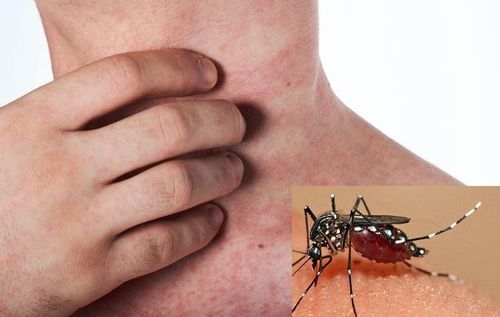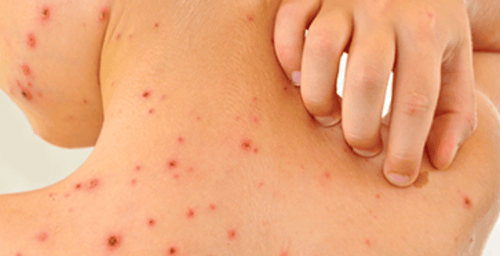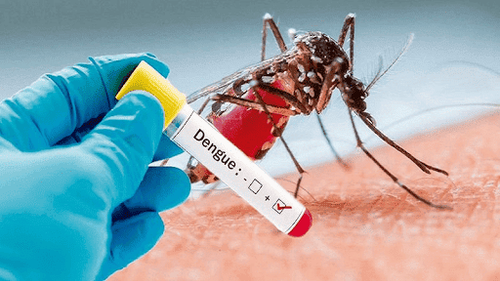The dangerous phase of dengue fever starts from the 3rd to the 6th or 7th day, at this time the patient is in the last days of the dangerous stage, but need to be alert because complications can still occur. out.
1. Caution on the 7th Day of Dengue Fever
Dengue fever is caused by the Dengue virus, transmitted primarily by Aedes mosquitoes through bites. The disease is not transmitted directly from person to person, non the less, caregivers need to avoid mosquito bites while caring for the patient. The stages of dengue fever are often associated with specific symptoms, including:
- Fever Stage: This is the incubation period; the patient can experience a high fever of 39 - 40 degrees Celsius, with continuous fever that is difficult to subside. Additionally, symptoms such as severe headache, eye pain, rash, nausea, and muscle and joint pain may occur.
- Critical Stage: This stage begins from the 3rd day until the 6th or 7th day of dengue fever. The patient may experience a decrease in fever. However, if symptoms such as an enlarged and painful liver, oliguria, abdominal pain, nausea, lethargy, cold and clammy skin, low blood pressure, or bleeding under the skin or mucous membranes appear, immediate medical attention is necessary.
- Recovery Stage: This typically begins when the patient reaches the 7th day of dengue fever (or the 8th to the 10th day), with the patient recovering from the fever and stabilizing blood pressure.
Low blood pressure is a sign indicating that dengue fever is in a critical stage.Low blood pressure is a sign indicating that dengue fever is in a critical stage.
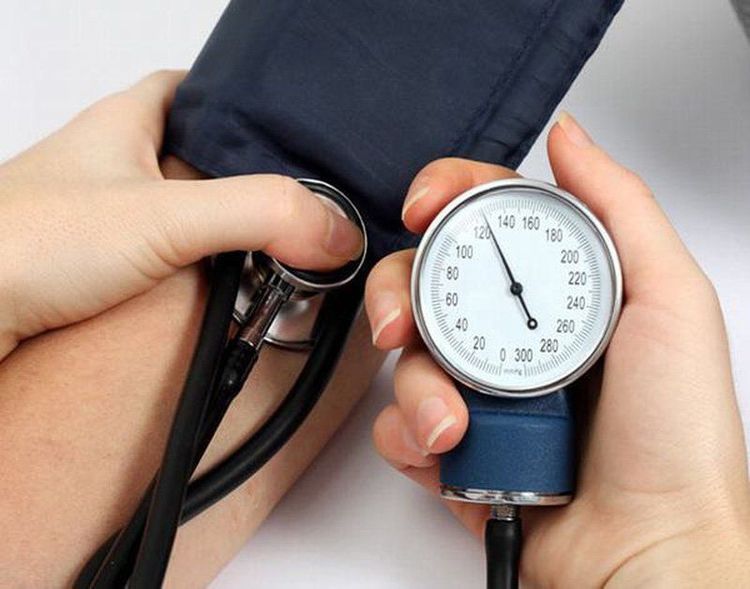
2. Degrees of Dengue fever
Dengue fever can manifest in three levels:
- Dengue Fever: Patients experience a sudden high fever lasting from 2 to 7 days, bleeding under the skin, muscle and joint pain, and pain in the eye sockets. Labratory tests show no signs of blood concentration; platelets are normal or slightly decreased, and white blood cells may decrease.
- Dengue Fever with Warning Signs: Symptoms include fever accompanied by warning signs such as restlessness, lethargy, abdominal pain in the liver region, persistent nausea/vomiting, mucosal bleeding, and oliguria. Lab tests show elevated red blood cells and rapidly decreasing platelets.
- Severe Dengue Fever: Patients exhibit severe plasma leakage leading to dengue shock syndrome, fluid accumulation in the pleural and abdominal cavities, severe bleeding, and organ failure. Dengue shock typically occurs from the 3rd day to the 7th day of the illness, with symptoms of restlessness, lethargy, cold extremities, and low blood pressure.
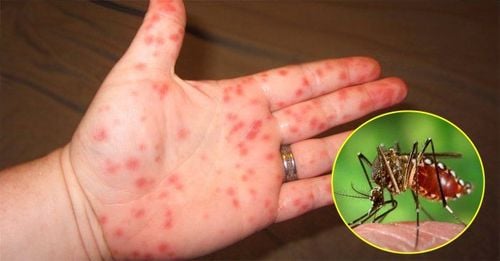
3. Precautions When Dealing with Dengue Fever
When experiencing dengue fever, both patients and caregivers should be aware of the following:
- Do not self-prescribe antipyretic medication: Unless a specific diagnosis of the fever is made and a doctor's recommendation is given, patients should avoid self-medicating with antipyretics (such as aspirin or ibuprofen). However, fever can be reduced by wearing loose clothing and resting in a cool area.
- Avoid eating eggs during dengue fever: Eggs can increase body temperature and slow the cooling process by preventing sweat.
- Refrain from consuming stimulants: Stimulants can excite the brain, raising blood pressure and heart rate, and increase fatigue.
- Avoid foods with dark, brown, or red color: Consuming these foods may cause the stool of dengue patients to appear dark, making it difficult to distinguish between darkened stool and stool mixed with blood in cases of gastrointestinal bleeding.
- Limit sweet or spicy foods: Excessive sugar or spicy food intake can prolong recovery from dengue.
- Minimize mosquito exposure to skin: Dengue patients may be in an epidemic area, so it is important to avoid mosquito bites, as they can increase the viral load and risk infection in others nearby.
- Maintain a clean living environment, free of stagnant water in containers, and cooperate actively with health authorities during insecticide spraying campaigns.
To arrange an appointment, please call … or make your reservation directly HERE. You may also download the MyVinmec app to schedule appointments faster and manage your reservations more conveniently.
Please call HOTLINE or make your reservation directly HERE to arrange an appointment. You may also download the MyVinmec app to schedule appointments faster and manage your reservations more conveniently.




